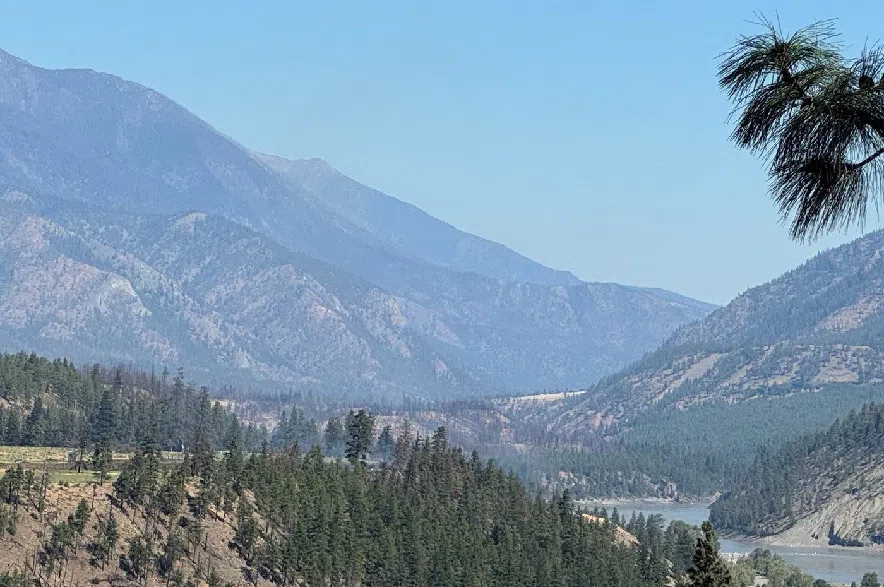This week marks the four-year anniversary of a deadly wildfire that destroyed the British Columbia village of Lytton and the community is again under threat, with a fire burning out of control north of the community setting off evacuation orders and alerts.
The Izman Creek fire saw the Thompson-Nicola Regional District issue an evacuation order for three properties and an evacuation alert for nine addresses along Highway 12 around 8 p.m. on Tuesday.
Read More:
- Hundreds of wildfires continue to burn different parts of Canada
- Heat warnings from Environment Canada blanket parts of southwestern Saskatchewan
- Sean “Diddy” Combs acquitted of most serious charges, convicted of a prostitution-related offense
The BC Wildfire Service said the blaze discovered Tuesday had grown rapidly to about 25 hectares in size, closing the highway in both directions for about 60 kilometres as ground and air firefighting crews respond.
The fire is among about 470 fires burning across Canada, including more than 80 in British Columbia.
Alexandria Jones with the Canadian Interagency Forest Fire Centre said Canada had been at national preparedness level five, the highest level, since May 29.
The designation means wildland fire activity is significant across multiple jurisdictions and all Canadian firefighting resources are engaged in battling the blazes, while international partners are also being called on for help, she said.
Jones said the situation across the country is “severe” and there are still three months ahead in this fire season.
“What is really critical is the area that’s burned, how quickly these fires are spreading. And so this year we’re already at four million hectares.”
While that is about half of the figure for this time in 2023 — Canada’s worst fire season on record — this year’s number is much higher than early July in 2024, 2022, 2021 and 2020.
Just over one million hectares had burned at this time last year, Jones said, while just under 190,000 hectares had burned by early July 2022.
At this point in 2021, 493,000 hectares had burned.
Jones said Canada had received assistance so far from firefighters from the United States, Australia, Mexico and Costa Rica.
In B.C., the Thompson-Nicola Regional District had earlier issued a local state of emergency for the Blue Sky Country region due to another nearby wildfire, which was burning out of control on Tuesday before being classified as “being held” as of Wednesday morning.
About 85 fires are burning in Yukon, where the territory has lifted an evacuation alert for the area surrounding Ethel Lake, a four-hour drive north of Whitehorse.
In Alberta, firefighting crews are battling more than 60 wildfires, with 18 designated as out of control.
Statistics from the Canadian Interagency Forest Fire Centre show that about 168 of the active wildfires across the country are burning out of control.
There have been 2,554 fires this year, compared to 2,763 by July 2 last year and 3,214 at the same point in 2023.
Lytton, about 250 kilometres northeast of Vancouver, is still in the process of rebuilding from a devastating 2021 fire that tore through the community four years ago on Monday, killing two people and wiping out much of the village and part of the Lytton First Nation.
It was sparked on June 30, 2021, a day after Lytton set a Canadian temperature record of 49.6 C.
— With files by Brieanna Charlebois in Vancouver











